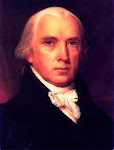Stop the out of control spending!
The response by the Senate was to propose a commission to deal with the growing gap in the budget. Proposed by Sen Kent Conrad (D) and Sen Judd Gregg (R) along with twenty-five other sponsors, this commission would consist of eighteen serving legislators and administration officials to look at both taxation and spending as the deficit continues to grow at an alarming rate. The recommendations of this group would then be brought to the floor for a straight up or down vote. The Senate, in a bi-partisan vote, rejected the proposal.
The President responded in the State of the Union Address by telling the Congress that he was going to set up just such a commission anyway, only under an executive order saying, "I refuse to pass this problem on to another generation of Americans". (Though apparently debt and bankrupt entitlement programs are of less concern in the 'passing on' department.)
The concept is not a new one. Similar commissions have been created in the past to look at the financial crisis of the Social Security System in the early 80's (the Greenspan Commission) and to deal with the necessity of military base closings at the end of the Cold War (Base Realignment and Closure Commission) in four rounds in the 80's and 90's.
Their history is one of limited success at best and poor theater at worst. Their creation has over the years however, provided excellent cover for legislators and national leaders unwilling to realistically address critical or politically sensitive issues, especially in regards to the out of control taxation and expansion of the budget. In one of the few truly bi-partisan efforts in government, neither party seems willing to make the tough choices that the country needs. Republicans, once the party of limited government and fiscal responsibility, choose instead to be the party that grows government more slowly. Democrats, who have a history of profligate spending, believe that they are in control of a runaway train that's careening down the tracks these days at an incredible speed. And while both parties will admit that the bridge ahead is out, neither will admit to knowing where the brakes on the train are.
We don't need the commission proposed by the Senate and now forced upon us by the President. Neither do we need the President's proposed spending freeze, a plan which will barely impact the amount of money flowing from Washington (and which surprisingly enough if passed, will not have any real effect until after the mid-term election). What we need is for the people who have chosen "public service" to perform that function. We need for the members of Congress to look beyond the giant checks that they can bring back to their constituents, the fancy fact-finding trips sponsored by lobbying groups, and the inordinate amount of time that they spend raising money and running for re-election and get a clue as to what is going on in this country. What we need in fact is for these politicians to stop finding ways to keep their jobs and to start doing them instead. Of course all this is merely a pipe dream, for most politicians today are consummate pros.
They know that doing any of the things that I suggest might have an adverse effect on the careers that they seem to place far above the duties of their office and the public trust that we have given them. I can admire their professional acumen, but I will say that with rare exceptions (and you know who you are Ron Paul) that I consider them both clueless and gutless.







